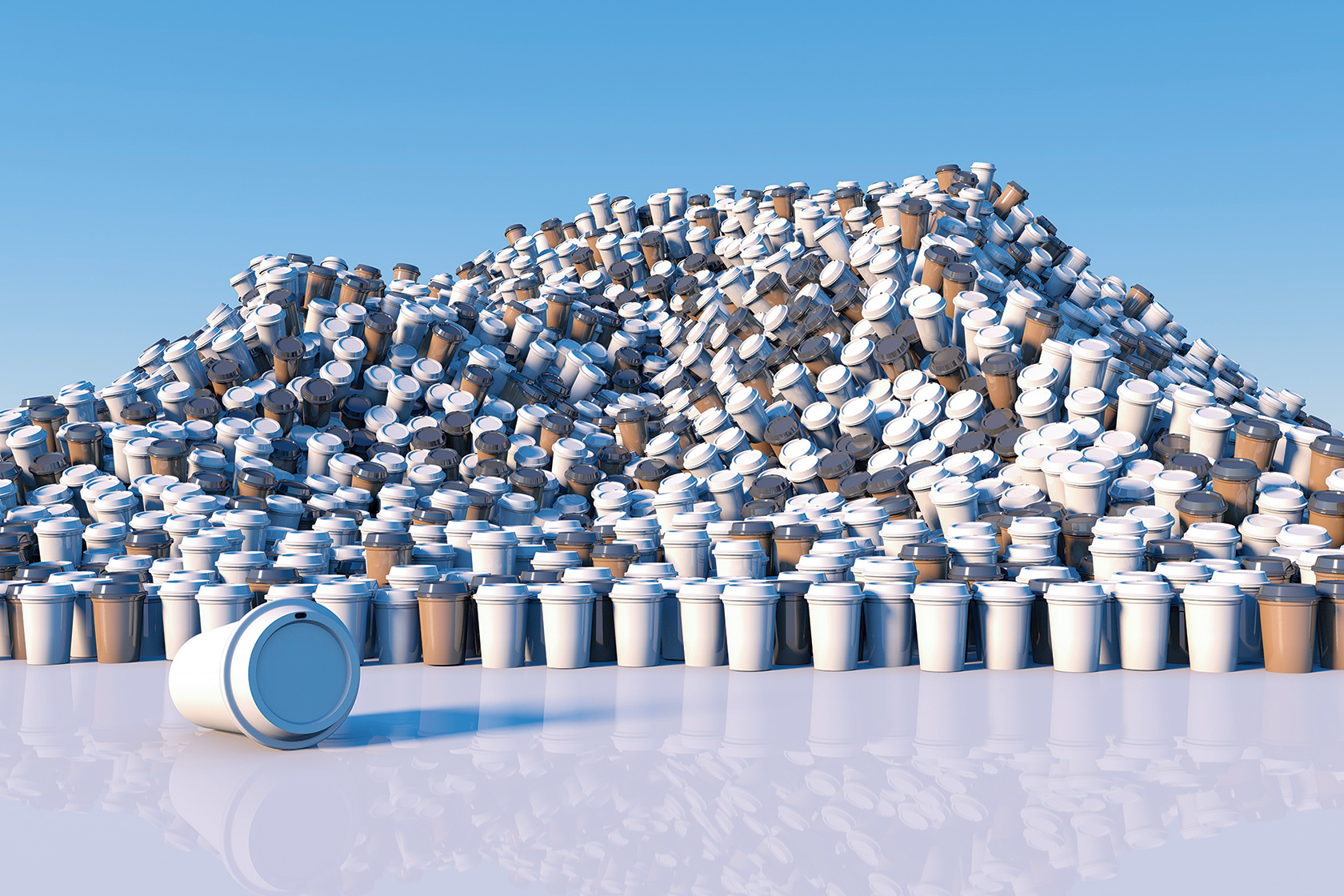How Do Reusable Coffee Cups Help The Environment?
I use a reusable cup for takeaway coffee, have a selection of non-plastic bags I take grocery shopping, and try to make choices to buy things with as little packaging as possible.
But a quick look into whether these behaviours are really the "right things" to be doing left me depressed, discouraged and feeling defeated.
Australia's recycling systems still rely heavily on shipping our waste to other countries for them to deal with.
Since China largely stopped accepting our waste in 2018, this has meant much of what could be recycled is being sent to landfill or is sitting in stockpiles, waiting for something to happen.
While we know single-use plastics contribute to pollution and have been linked to killing seabirds (and just about everything else), replacing one plastic with another without thinking about how we use these products isn't necessarily much better in the long run.

It Comes Down To The Life-Cycle Of The Product
Trevor Thornton, from Deakin University's School of Life and Environmental Sciences, has written about the commonly asked "how many times do you need to reuse a shopping bag" question for The Conversation.
"There's no black and white answer," he says.
Dr Thornton says to really know what impact an item — whether a car, a piece of clothing or a plastic bag — has on the planet you have to look at the full life-cycle: how and from what it's made of, how it's used, and what happens to it when you don't need it anymore.
Like mine, your coffee cup may be made from recycled materials, but how you use it affects how truly sustainable it is.
"With reusable cups, a lot of the environmental burden comes from using hot water and detergents [to wash it]," Dr Thornton says.
As with everything else we own, each time you wash a cup there is an environmental impact.
That impact depends on whether you use hot or cold water, whether your hot water comes from coal-power electricity or hydro or solar, what types of detergents you use, whether you're on tank water, have a septic tank, how much water you use, how often you wash it and on and on.
So if you're in Victoria, where coal power is the main source of electricity, and you wash your cup with detergents, it might actually be better for the environment to use a compostable disposable cup, and put the plastic lid in the recycling.
But again, it also depends how many coffees you have in a day, whether you wash that cup each time or only rinse it in between uses and so on and so on.
In other words, once you start stepping through the impact of your actions, it very quickly becomes apparent why it's so difficult to provide a definitive answer.
Or as Dr Thornton says: "It's difficult to say for the population as a whole; 'this is the better one'."
For what it's worth, Dr Thornton (who lives in Victoria) does have a reusable coffee cup and is still in favour of people being conscious of anything single-use.
He calls reusable cups "gateway items": if people start to care about their coffee cups, they often move on to care about other stuff they use, too.

Every Small Action Counts
As Dr Thornton says, by first caring about the bowl our fried rice comes in, the next step is caring about where the rice is from and what happens to the leftovers.
While I now know my reusable coffee cup isn't saving the planet, at least I can do some small things to start making a change.
Maybe we're not quite so doomed after all. If we can change our coffee habits, who knows what we else we can do.
What Double Shot Espresso is about
Who are we? We are at our core travel, coffee and creative enthusiasts. We have combined these three passions to bring you 2X Espresso which will help you find the best products and places to explore.


0 comments